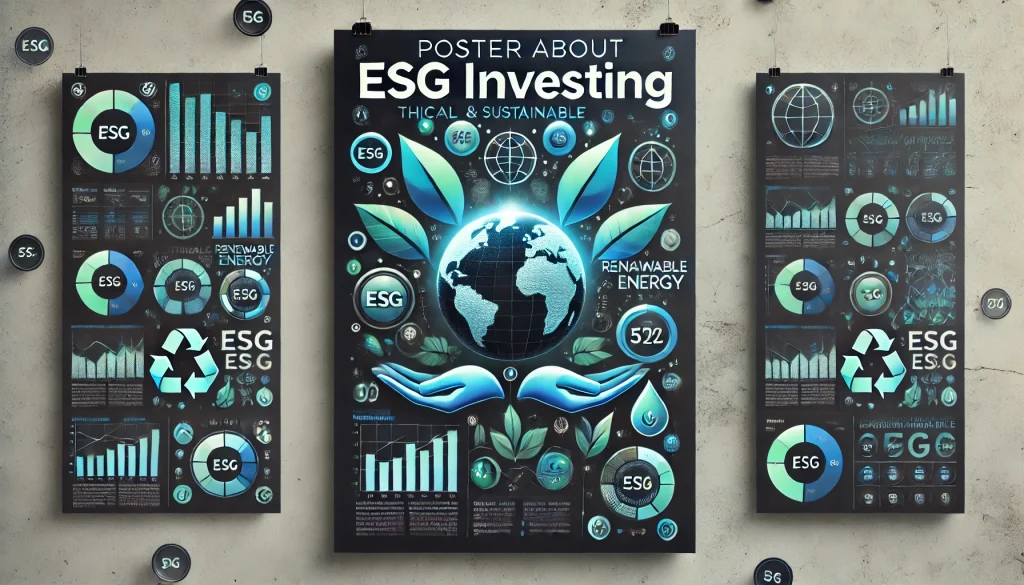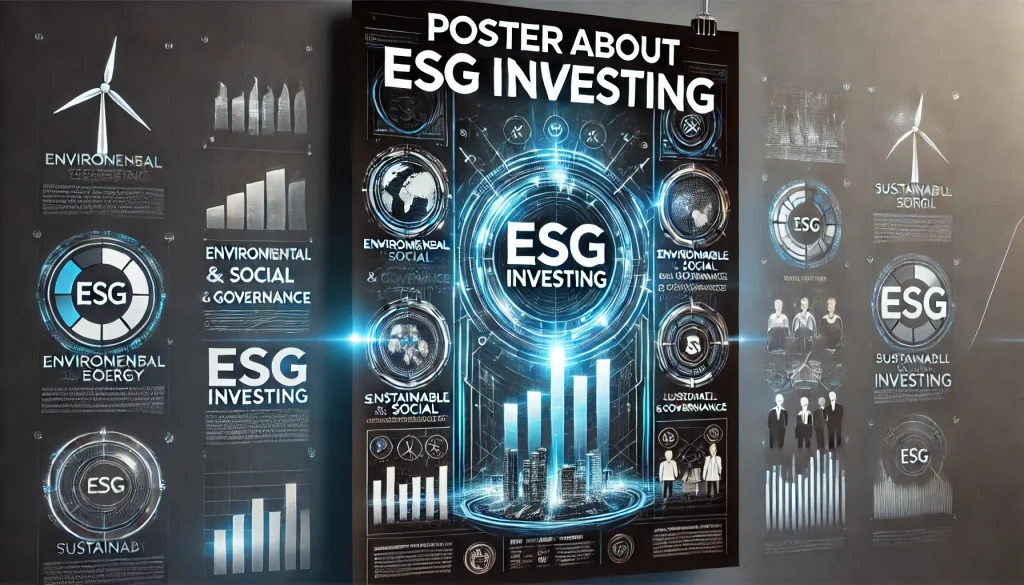
ESG investing, which stands for Environmental, Social, and Governance investing, has emerged as a powerful trend reshaping the financial landscape. Investors today are more conscientious than ever, seeking portfolios that align with their values while still generating competitive returns. This review dives deep into the concept of it, examining its key attributes, advantages, and drawbacks, and helping you decide if this is a strategy worth pursuing.
Why review ESG investing? As its popularity skyrockets, understanding its nuances is critical for making informed financial decisions.

Overview of ESG Investing
At its core, it integrates non-financial factors—environmental impact, social responsibility, and corporate governance—into traditional investment analysis. The aim is to support sustainable companies while mitigating risks tied to unethical practices or unsustainable operations.
Key Features :
- Environmental: Focuses on climate change, renewable energy, and resource conservation.
- Social: Emphasizes workplace diversity, community development, and human rights.
- Governance: Evaluates board diversity, executive compensation, and corporate ethics.
Investors can access ESG strategies through mutual funds, ETFs, or by analyzing individual stocks. These frameworks aim to balance profitability with long-term sustainability, making them particularly appealing to socially conscious investors.
Pros of ESG Investing
- Alignment with Personal Values
It lets investors align their portfolios with their ethical beliefs, supporting causes like environmental conservation or fair labor practices. - Potential for Long-Term Outperformance
Research suggests companies with strong ESG practices often outperform their peers over the long term, as they tend to be more resilient to risks and adaptable to changing market conditions. - Lower Risk Exposure
ESG strategies often exclude industries with high regulatory or reputational risks, like fossil fuels or tobacco, reducing the likelihood of volatile downturns. - Growing Popularity and Accessibility
As ESG becomes mainstream, platforms and tools for it have proliferated, making it easier for everyday investors to participate.
Cons of ESG Investing
- Subjectivity in Scoring
ESG metrics vary significantly between rating agencies, making it challenging to compare companies accurately. - Potential for Greenwashing
Some companies overstate their ESG credentials, misleading investors about their actual impact. - Limited Investment Choices
Excluding entire sectors or industries can limit diversification, potentially affecting portfolio performance. - Higher Costs
ESG funds often have higher expense ratios than traditional funds due to the additional research and analysis involved.
In-Depth Analysis of ESG Investing
Performance
ESG investments generally exhibit competitive returns compared to traditional portfolios. Studies indicate that businesses with high ESG scores tend to navigate crises better, as they prioritize resilience and stakeholder trust.
Usability and Accessibility
Online platforms like Vanguard and BlackRock offer user-friendly ESG funds. Additionally, robo-advisors, such as Betterment, provide ESG-focused options, making this investment style accessible to beginners and seasoned investors alike.
Credibility of Metrics
The lack of standardized ESG metrics poses a challenge. While organizations like MSCI and Sustainalytics provide scores, discrepancies between their methodologies can lead to confusion. Transparency in evaluation remains an area for improvement.
Long-Term Impact
The ethical appeal of it lies in its potential to drive societal change. By directing capital toward responsible companies, investors contribute to a broader push for corporate accountability.
Comparison with Traditional Investing

Similarities:
- Both aim to generate returns and build wealth.
- Risk management and portfolio diversification remain central goals.
Differences:
- ESG investing incorporates ethical considerations, while traditional strategies focus purely on financial performance.
- ESG funds may avoid high-yield sectors like oil or coal, which are prominent in traditional portfolios.
While traditional investing offers broad diversification and lower fees, ESG investing appeals to those prioritizing values and sustainability alongside returns.
FAQ
What does ESG stand for in investing?
ESG stands for Environmental, Social, and Governance. These are the criteria used to evaluate a company’s sustainability and ethical impact.
Is it profitable?
Yes, it can be profitable. Companies with strong ESG practices often show resilience and long-term financial performance.
How do I start it?
You can start it by exploring mutual funds, ETFs, or individual stocks with high ESG ratings. Robo-advisors also offer ESG-focused portfolios.
Conclusion
ESG investing represents a transformative approach to financial management, offering a chance to align investments with personal values. While it comes with challenges like higher costs and inconsistent metrics, its long-term benefits—both financial and societal—make it a compelling choice for many.
If you prioritize ethics and sustainability in your investment strategy, ESG investing is worth considering. Just ensure you do your due diligence to avoid greenwashing pitfalls.
ESG Rating: 4.5/5
ESG investing scores high for its innovative approach and alignment with modern values. Minor issues like cost and metric subjectivity hold it back from a perfect score.
Resources:
- Investopedia: What Is ESG Investing?
- Investor.gov: Environmental, Social and Governance Investing
- Finance Alliance: 7 key benefits of ESG investing
- NerdWallet: For Beginners: Environmental, Social and Governance
- ScienceDirect.com: Investing in good and bad times: An international study
